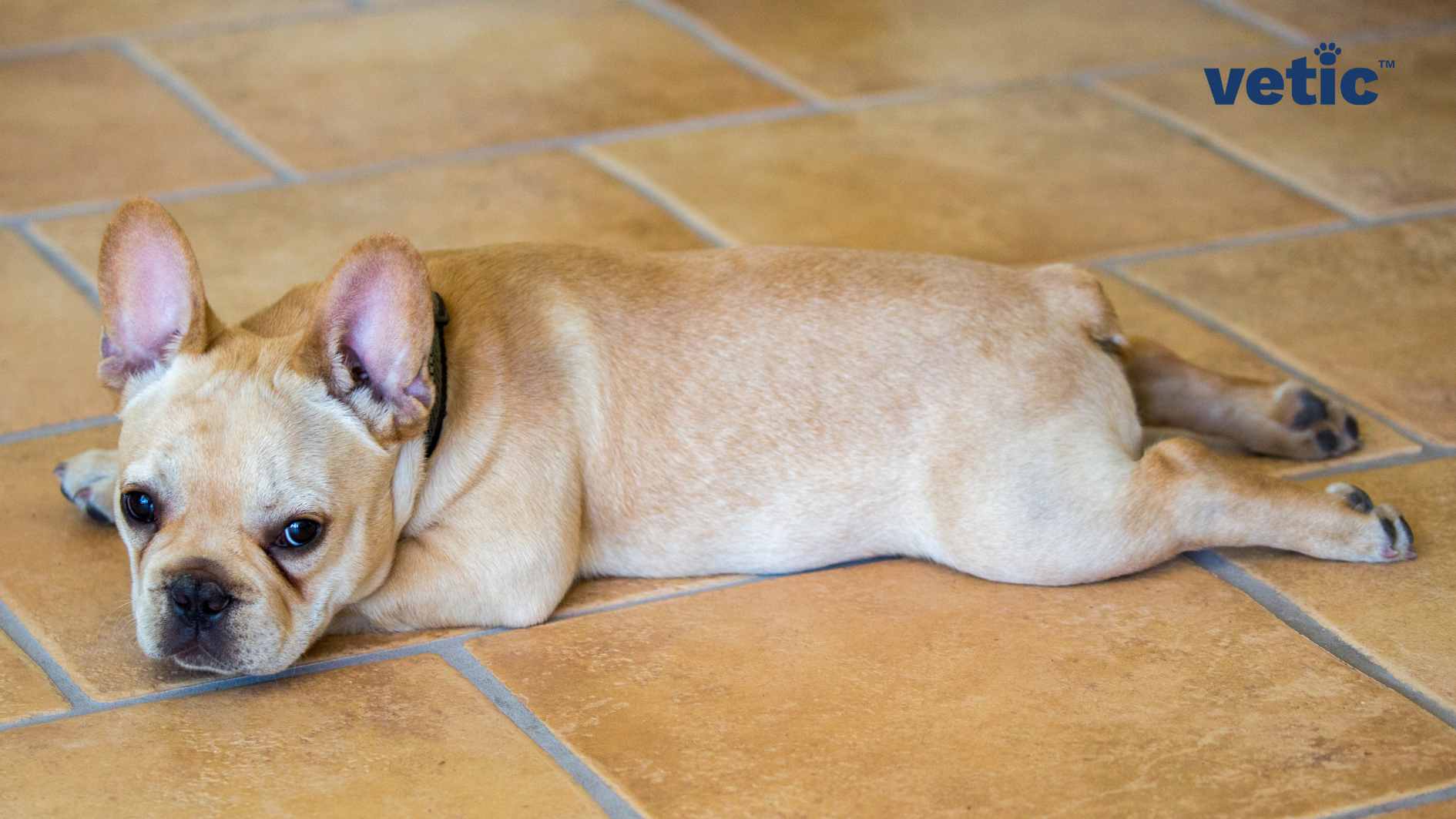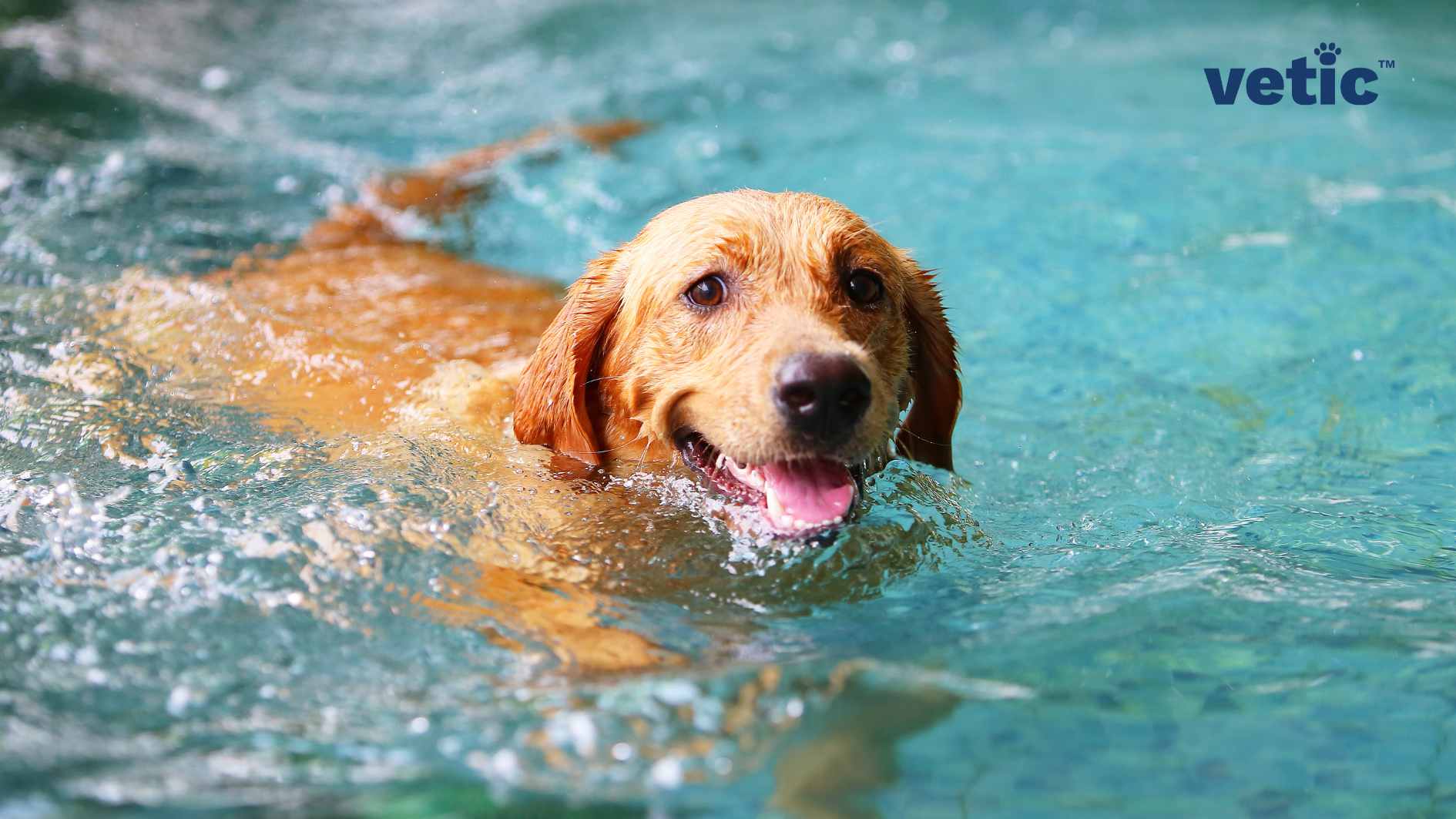Have you ever caught your dog lying on his stomach with his front and back legs stretched out? That is called splooting. It is adorable and it causes us to fall in love with our puppers every time we see them sploot.
If you are having trouble understanding what splooting means? You can refer to this super cute photo below.

What is Sploot or Splooting?
Splooting is also called frogging and it is very common for French bulldogs and Chihuahuas. While retrievers are more likely to do a half-sploot, you can often catch them in a full-sploot on a hot day or right after their walks.
When a dog sploots, all their legs are pushed outwards so his belly and hips are touching the ground.
Now, many of us wonder if this kind of acrobatics is good for our dog’s joints. Let’s find out.
Why do dogs sploot?
According to our veterinarians, some dogs sploot simply because they like to! And it’s not just dogs. You can often find cats all stretched out on the floor on a hot and sunny day if the floor is cool.
Some dogs like their share of daily yoga. They like stretching their limbs out especially after a long active day.
Dogs sometimes sploot just because they can and they enjoy your attention.
When Should You Worry If Your Dog is Doing a Sploot?

Hip Dysplasia can cause dogs to sploot
Splooting in medium to large breeds may be a cause for concern. A significant number of labrador retrievers, golden retrievers, and german shepherds sploot due to hip dysplasia.
However, if your dog is developing hip dysplasia, you can notice other signs as well, these include –
- A bunny hop run
- Stiff walking posture
- Aversion to play
Hip dysplasia typically begins during puppyhood and some breeds are more prone than the others. In addition to the breeds we have mentioned above, hip dysplasia can be noticed in Saint Bernard and Great Dane breed.
Hip dysplasia develops due to uneven growth of the ball and socket joint of the hip. When the ball and socket of the joint do not grow proportionately there can be looseness in the joint and it causes pain as the pupper grows up. It often leads to osteoarthritis.
Hip dysplasia cannot be predicted, but if puppies begin showing signs mentioned above you can always try consulting a veterinary physiotherapist for rehabilitation therapy. Swimming can help dogs with hip dysplasia live a full life of activity minus the pain.
Osteoarthritis can be a reason why your dog sploots
While old dogs can learn new tricks, you cannot teach an older dog to suddenly sploot!
If your older dog has suddenly begun splooting, it can be because their joints hurt and splooting is helping them stretch out their painful joints. It is often a sign of osteoarthritis.
Osteoarthritis is a degenerative disease of the joints. You should look for other signs that say your dog is hurting. The most common signs of pain in older dogs are –
- Reluctance to perform activities
- Lethargic behaviour
- Trouble changing postures
- Crankiness
- Aversion to petting
If your older dog is suddenly splooting, talk to your veterinarian immediately.
So, Should You Worry About Your Dog Splooting?
Remember, dog breeds with smaller legs often sploot because it’s comfortable for them. Larger breeds sploot to stretch out their joints, which may or may not be a sign of arthritis in dogs.
If your pupper has been splooting all his life, there’s no reason for you to worry. In the case your older dog is suddenly frogging, you need to speak with your veterinarian.
